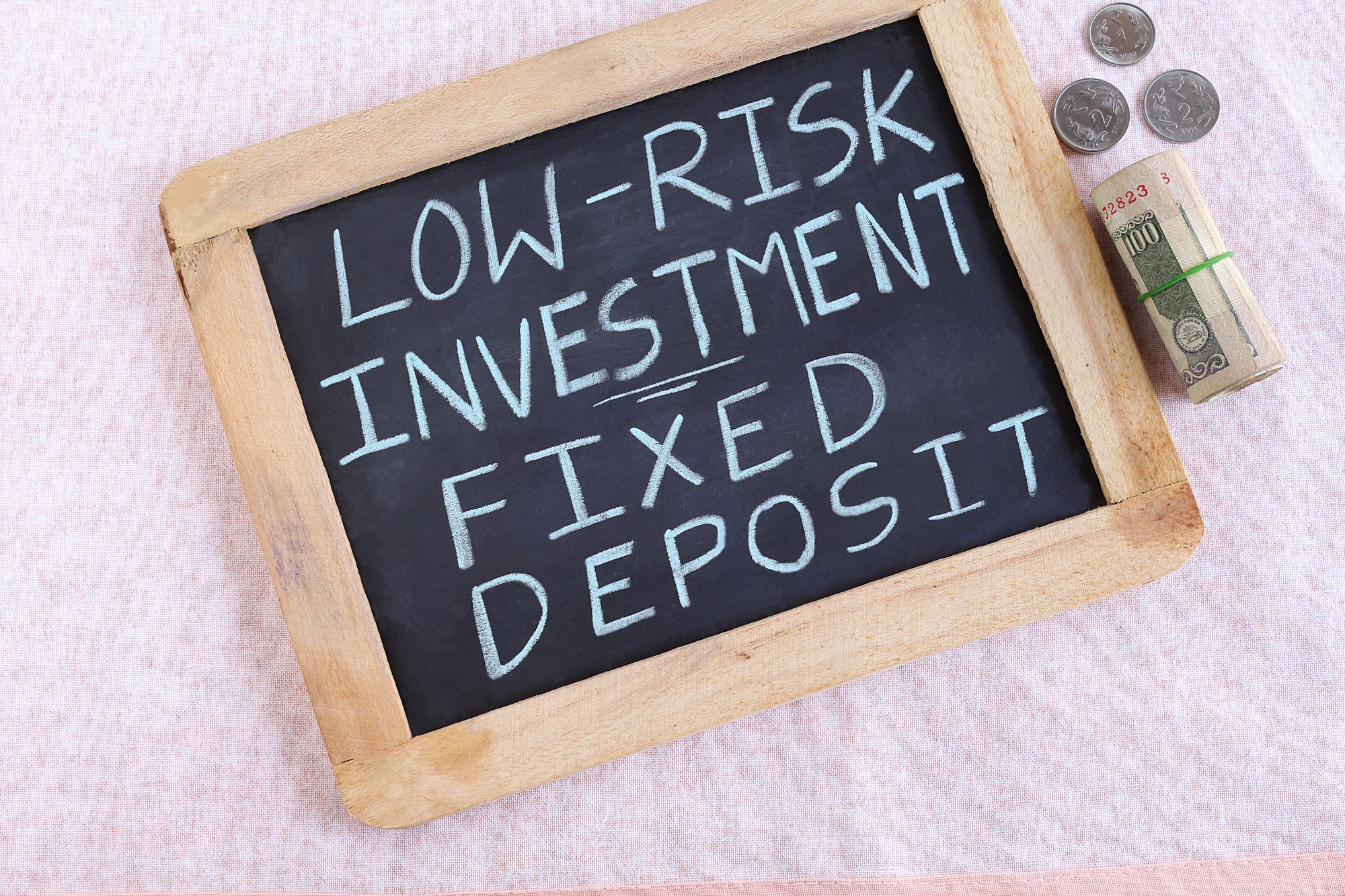
Fixed deposits (FD) are one of the most sought-after investment alternatives in India on account of their guaranteed returns. Despite an increase in new investment alternatives, FDs are still one of the most preferred investments. With interest rates on the rise, FDs have become more attractive than ever. Read to learn more about fixed deposit accounts and how to create an FD account.
What Is Fixed Deposit?
A fixed deposit is a savings instrument offered by banks. The main purpose of an FD is to help you save money. In FD, you can invest a certain sum of money at a predetermined rate of interest for a fixed tenure. The interest is higher than the savings account. At the end of the tenure, you will receive the investment and interest amount in a lump sum.
How Does Fixed Deposit Work?
A fixed deposit account is very different from a current or savings account offered by banks. In a current or savings account, the bank allows you to withdraw money as and when you like. However, in a fixed deposit account, the bank blocks the amount for a fixed tenure chosen by you. It pays an interest against the blocked amount at the end of the tenure. At the end of the tenure, you can either renew the FD or withdraw the amount.
You cannot withdraw the investment amount during the tenure. In case you want to withdraw it, the bank will charge a penalty on the interest before giving you the amount.
Features of Fixed Deposits
Following are the features of fixed deposits:
- Investment: the minimum amount of investment for fixed deposits is Rs 1,000 and varies from bank to bank. A fixed deposit allows you to invest only in a lump sum. You cannot make subsequent investments in the same FD. In case you want to invest more in FDs, you must open a new FD account.
- Tenure: The tenure of FDs ranges from seven days to ten years. You can choose your tenure based on when you want your money.
- Returns: Interest on fixed deposits is compounded quarterly but paid at the time of maturity. The returns are guaranteed, and there is no loss of capital.
- Premature withdrawal: Some banks allow premature withdrawal of FDs; however, they will charge a penalty of up to 1% on the interest amount for premature closure.
- Renewal: Upon maturity, the FD can either be renewed or withdrawn. Some banks automatically renew the FD, while some don't. If it is not automatically renewed, you must renew it. The renewal process is very simple and easy and can be done online.
- Loan against FDs: In case you need money urgently, banks allow you to avail of a loan against your FD and save you from prematurely closing it. The terms of the loan vary from bank to bank.
Types of Fixed Deposits
There are several types of fixed deposits that banks offer. Following are some of the most common types of FDs:
- Normal fixed deposits
- Tax-saving fixed deposits
- Cumulative and non-cumulative fixed deposits
- Flexi fixed deposits
- NRI fixed deposits
- Senior citizen fixed deposits
Benefits of Fixed Deposit
- Guaranteed returns: FDs offer guaranteed returns, and hence they are zero-risk investments. Even if the market is falling, you will get assured returns. The interest is credited to your bank account at the end of the tenure.
- Higher return than savings account: FDs offer higher returns than a bank savings account. This is one of the reasons why people are inclined towards saving in FDs than in a bank account. Moreover, the money in the bank account can be used at any time, but you cannot break an FD whenever you want.
- Flexible tenure: FDs have flexible tenure options. Banks offer FDs from seven days to ten years, and each tenure has a different interest rate.
- Multiple accounts: You can open multiple FD accounts in your name. Every time you want to invest in FD, you can open a new FD account.
- Tax benefit: You can claim a tax benefit on your tax-saving FDs qualifies of up to Rs 1.5 lakhs under section 80C.
- Loan against FD: You can take a loan against your FD in case of an emergency. By doing so, you don’t have to break it.
- Flexible interest payout: For non-cumulative FDs, you can choose the interest payout as per your requirement. You have monthly, quarterly, half-yearly, or annual options to choose from.
Frequently Asked Questions
What is the maximum FD limit?
The maximum amount of investment in FDs differs from bank to bank. Most banks accept investments up to Rs 2 crores.
Is five-year FD tax-free for five years?
No, the FD amount is tax-free only in the year of investment. If you want to claim tax benefits for five years, then you must invest every year.
What is the risk of a fixed deposit?
FDs are subject to interest rate risk. In case the interest rates go up, there is a risk of your money being blocked for a lower rate of interest.
Is interest on Fixed Deposit taxable?
Yes. Interest from Fixed Deposits is taxable and is considered as an 'income from other sources'.
Can I invest Rs.10 lakh in Fixed Deposit?
Yes, you can invest 10 lakh rupees in fixed deposit. Check the information on bank's return for the said amount before investing.
What is the maximum and minimum tenure for which I have to invest in Fixed Deposit?
You can invest your money in Fixed Deposits for a period of 7 days to 10 years. You can also check with the bank/ institution what is the rate of interest for the period of time you are investing the money.
In this article
 Back to all resources
Back to all resources





